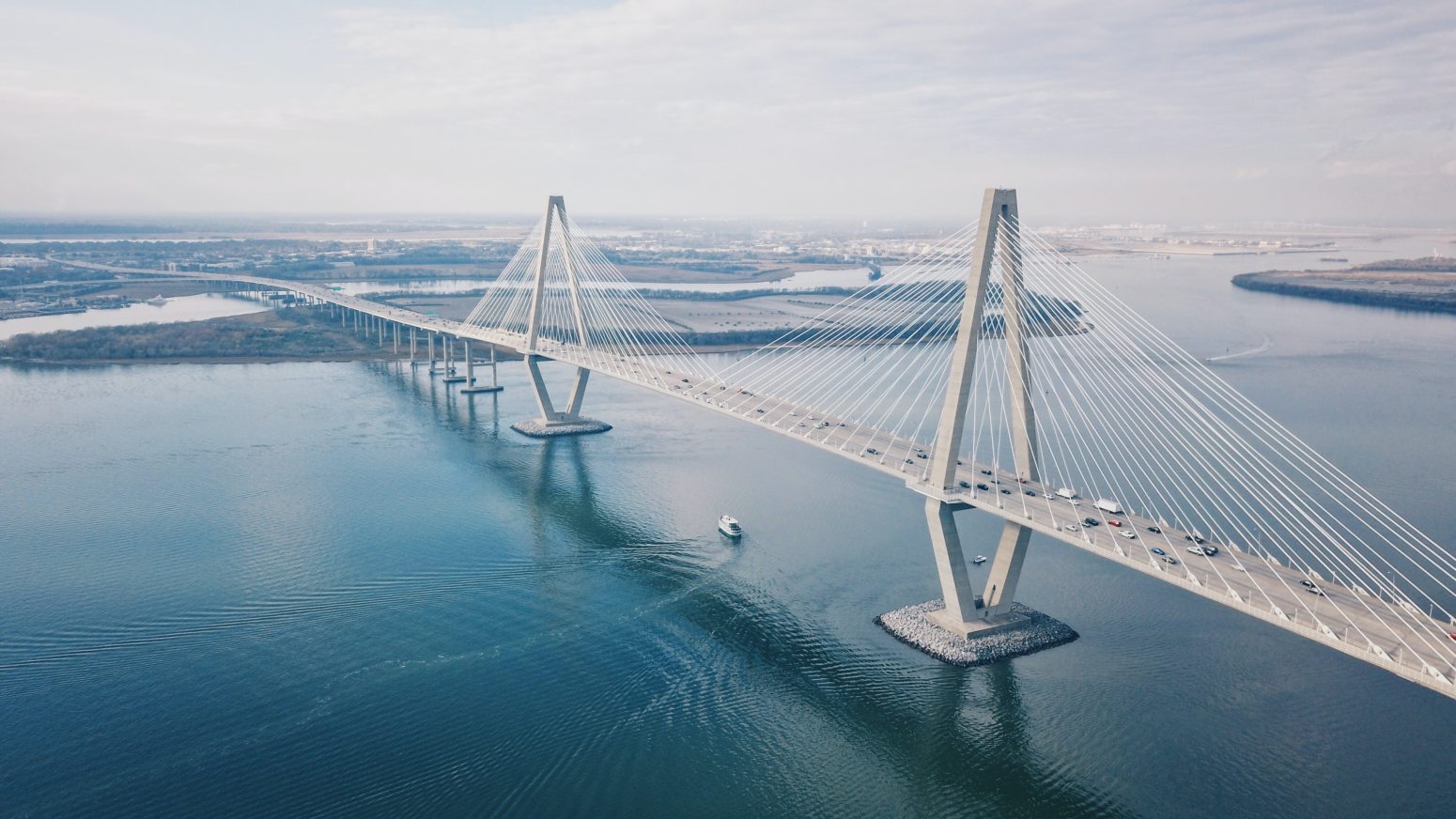Images have the power to transport us to far away and treasured places. They can help us to make sense of our lives too. For me, the image of a bridge over troubled waters (would make a good song title!) brings to mind turbulent, fast-flowing water, racing endlessly under a firm bridge which provides me with safe passage from one riverbank to the other. What is the ‘bridge’ for HE staff in these unprecedented times? How might the ‘bridge’ support our mental wellbeing?
My research over the years has focused on teacher wellbeing and has often used metaphors to gain deeper insights into teachers’ experiences as a springboard for reflection and action. Metaphors have ‘a powerful influence on both what we perceive and what we do’. I suggest that metaphors have the power to prompt us to view the world afresh, serving on occasions as a much needed ‘bridge’ over troubled waters on our professional journey.
Take two examples from participants in my research. It is perhaps unsurprising that extreme sport features frequently in the choice of metaphors among trainee teachers!
Bungee jumping
The initial experiences of teaching are like bungee jumping for the first time. The higher she climbs (towards first lesson), the more the doubts creep in about her ability to jump. Then she jumps and it’s both dangerous and exciting. Near the end of the jump, she feels the firm tug of the safety cord (her mentor), and knows that she is going to survive, even though there may be more ups and downs.
Have you ever felt like you were bungee jumping at work in the HE sector? That leap into the unknown, trying a new technological tool with a large group of students, or the fear and trepidation before an important presentation perhaps?
Yacht racing
The feeling of speeding across the vast expanse of a choppy lake, more or less in the right direction, is truly exhilarating. Just as she sees land in the distance, the tiller breaks and there is a sudden feeling of helplessness unlike any she has felt before. She breathes slowly, reaching purposefully for the yacht manual and the emergency flare.
Over recent weeks, many HE colleagues will have felt the wave of uncertainty caused by a broken tiller. The Friday evening announcements from the Department for Education, the constantly changing Covid-19 landscape, our inability to see around the next corner, concerns about our students and colleagues, the complexity of juggling professional and personal lives, to name just a few. This is on top of all the pre-existing crises, e.g. increasing numbers of precarious contracts for HE staff.
Like many teachers and school leaders, HE colleagues have been adept at responding to change, adjusting at speed to the ‘new normal’ of online teaching and remote research. But have we stopped to take time to reflect on the experiences, or have we been too busy, just surviving in the moment? We recognise the assault on the senses – physical, social, emotional – that emerges as we describe our lived experiences through metaphor (Lakoff and Johnson, 1980). We ignore these feelings at our peril.
A few principles emerge from the metaphors described above. They may help to inform our current experiences in HE, perhaps providing a welcome bridge to help us over troubled waters:
- Change has the potential to heighten our anxiety. It is vital to have good support and a clear plan of action, with small milestones to celebrate along the way.
- We need to give ourselves permission to take risks, to try new things. Senior colleagues must provide a safety net to create such an enabling environment. Exercising autonomy will not always lead to perfect outcomes but it might be exciting and exhilarating … and there will be learning!
- We cannot control everything (even less in a pandemic), so the focus of our fiercest attention should be where we can most make a difference.
- Relationships matter. We need considerate mentors and wise guidance. And, in turn, we need to be generous and gracious colleagues for others too. As the saying goes, surround yourself with radiators not drains!
- Faced with complex demands and uncertainties, support and solidarity with colleagues is vital for our own wellbeing and the wellbeing of others. So much is being achieved, so take the time to thank colleagues who have been a strong support for you. An attitude of gratitude promotes dignity at work and encourages a strong sense of community.
What metaphor would you use to describe your working life at the moment? And what does the metaphor tell you about this phase of your professional journey?
Author(s)
Professor Anna Lise Gordon is Director of the Institute of Education at St Mary’s University, Twickenham.
Anna Lise started her education career as a secondary school teacher and has worked in initial teacher education for many years. Her research interests centre on resilience and wellbeing of early career teachers and longer-term retention of more experienced teachers in the profession.
This blog is kindly repurposed from AdvanceHE and you can find the original here: Staff wellbeing in higher education: in search of a bridge over troubled waters
